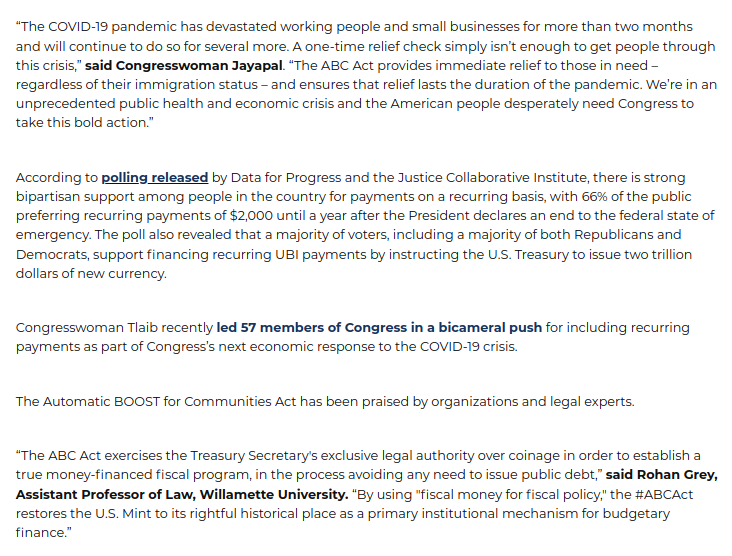
Oh alright then I guess that's settled
--
"If the bond has been issued in the last week, we will steer clear of that bond," Dr Lowe said, "We are doing this partly because we want to avoid any possibility that people see us as financing the government."
afr.com/policy/economy…
--
"If the bond has been issued in the last week, we will steer clear of that bond," Dr Lowe said, "We are doing this partly because we want to avoid any possibility that people see us as financing the government."
afr.com/policy/economy…
How stupid do you have to be to find this remotely credible?
--
"Dr Lowe drew a distinction between "providing finance" and "affecting the cost of that finance".
"The RBA is not providing finance to the government, but our actions are lowering the cost of government finance.""
--
"Dr Lowe drew a distinction between "providing finance" and "affecting the cost of that finance".
"The RBA is not providing finance to the government, but our actions are lowering the cost of government finance.""
I can think of, oh, I dunno, one pretty big difference in what happens to those payments.
--
"He said the bonds purchased by the RBA will have to be repaid by the government at maturity "in exactly the same way as would occur if the bonds were held by others".
--
"He said the bonds purchased by the RBA will have to be repaid by the government at maturity "in exactly the same way as would occur if the bonds were held by others".
I get that it's the RBA's job to pretend they aren't doing the-thing-they-are-clearly-doing, but making such transparently false and unconvincing arguments doesn't help their cause.
If you can't do better than this, just don't say anything.
If you can't do better than this, just don't say anything.
• • •
Missing some Tweet in this thread? You can try to
force a refresh








